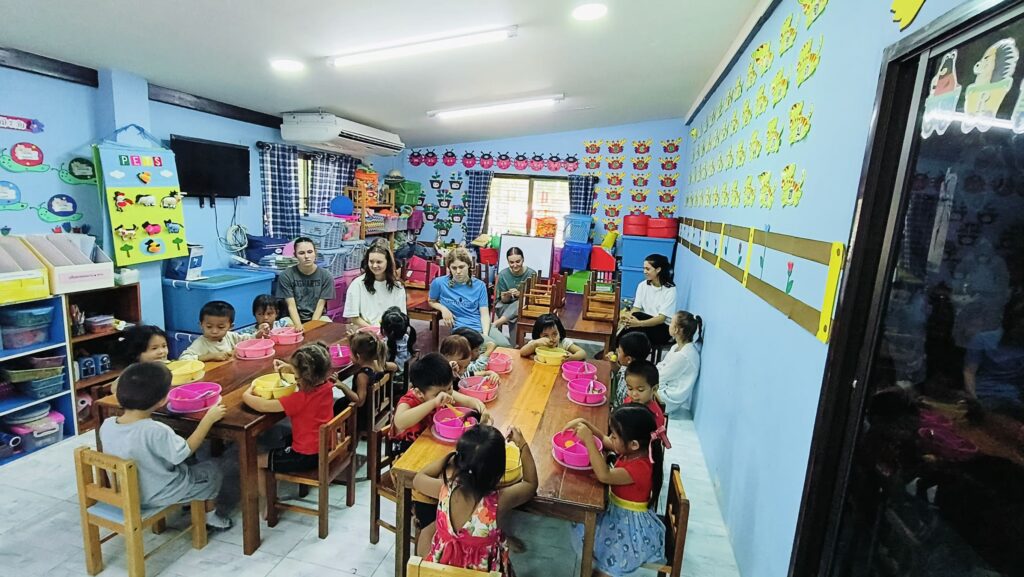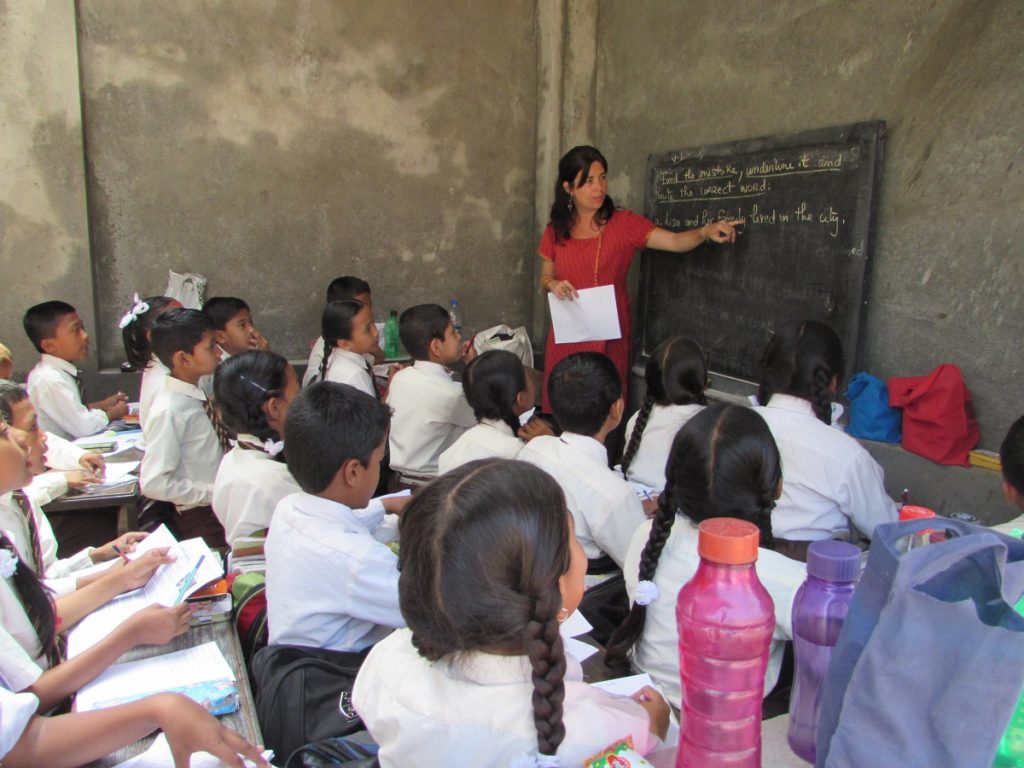Volunteering to teach abroad is a transformative experience that offers the chance to make a significant impact on the lives of students while immersing yourself in a new culture. Whether you’re a seasoned educator or someone passionate about sharing knowledge, teaching abroad can be incredibly rewarding. This blog focuses on the experiences of teaching abroad, the challenges and rewards, and offers practical tips for those interested in embarking on this journey.
The Experience of Teaching Abroad
Cultural Immersion
One of the most enriching aspects of teaching abroad is the opportunity to immerse yourself in a different culture. Living and working in a new country allows you to experience everyday life from a local’s perspective. You’ll learn about cultural traditions, languages, and social norms, all of which contribute to personal growth and a broader worldview. For instance, teaching in Japan might introduce you to the customs of respect and discipline ingrained in Japanese society, while volunteering in Ghana might offer insights into the vibrant community life and traditions.
Building Relationships
Teaching abroad enables you to form meaningful relationships with your students, fellow teachers, and the local community. These connections often extend beyond the classroom, leading to lifelong friendships and a deeper understanding of the community you serve. The bonds you form can become a crucial support system, enriching your experience and providing a network of contacts that may benefit you personally and professionally in the future.
Making a Difference
By volunteering to teach, you’re providing students with access to education that they might not otherwise have. Education is a powerful tool for breaking the cycle of poverty and empowering individuals. The knowledge and skills you impart can have a lasting impact on your students’ futures. For example, teaching English can open up new opportunities for students, allowing them to access better education and job prospects in the future.
Challenges of Teaching Abroad
Language Barriers
One of the most common challenges is the language barrier. Depending on where you teach, you may encounter students who speak little or no English. This can make communication difficult, but it also presents an opportunity to learn a new language and develop creative teaching methods. Using visual aids, body language, and simple, clear instructions can help bridge the gap. Additionally, you might find yourself picking up the local language, which can further enrich your experience and enhance your ability to connect with your students.
Cultural Differences
Adapting to different educational systems and cultural expectations can be challenging. Teaching styles, classroom management techniques, and student behaviour may vary significantly from what you’re used to. In some cultures, students may be more reserved and less likely to participate actively in class, while in others, a more interactive and dynamic approach might be the norm. Being open-minded and flexible is key to overcoming these challenges. Learning about the local educational philosophy and adapting your methods accordingly can help create a more effective and harmonious learning environment.
Limited Resources
Many volunteer teaching positions are in underfunded schools or communities with limited resources. You might have to get creative with lesson plans and materials, and be prepared to work with minimal supplies. This can be challenging, but it also encourages resourcefulness and innovation. For example, using recyclable materials for arts and crafts, or leveraging local resources and outdoor spaces for teaching can be both practical and engaging for students.
Emotional Challenges
Teaching in underprivileged areas can be emotionally challenging. You may encounter students facing difficult circumstances, such as poverty, family issues, or health problems. Witnessing these challenges can be heartbreaking, but it also highlights the importance of your role and the impact you can make. Offering emotional support and being a positive role model can significantly influence your students’ lives.
Tips for Volunteering in Education Abroad
1. Choose the Right Program
Research different volunteer organisations and programs to find one that aligns with your goals and values. Look for programs with positive reviews, transparent operations, and a strong focus on sustainable impact. Consider factors such as location, duration, and the type of teaching you’ll be doing. Reputable organisations often provide pre-departure training and support, which can be invaluable in preparing you for your experience.
2. Prepare Thoroughly
Before you go, take the time to learn about the country and community where you’ll be teaching. Understanding the local culture, customs, and educational system will help you adapt more quickly. Also, brush up on any relevant language skills and familiarize yourself with common teaching practices in the region. Reading travel guides, watching documentaries, and connecting with former volunteers can provide valuable insights.
3. Be Flexible and Adaptable
Flexibility is crucial when teaching abroad. Be prepared for unexpected challenges and changes in plans. Adapting to new situations with a positive attitude will help you navigate any difficulties you encounter. Embrace the unexpected as part of the adventure and learning experience.
4. Develop Engaging Lesson Plans
Create lesson plans that are interactive and engaging. Incorporate local culture and context into your lessons to make them more relevant to your students. Use visual aids, games, and hands-on activities to facilitate learning, especially if there are language barriers. For instance, using local folklore in reading exercises or incorporating traditional music and dance into lessons can make learning more relatable and enjoyable for students.
Here is a helpful post: 11 Awesome TEFL/ ESL Games for Teaching Kids Abroad
5. Build Relationships with Students and Colleagues
Invest time in building rapport with your students and fellow teachers. Developing strong relationships will create a supportive learning environment and enhance your overall experience. Show genuine interest in your students’ lives and be approachable. Participate in school activities, attend community events, and engage with parents to foster a sense of trust and collaboration.
6. Reflect and Learn
Teaching abroad is a learning experience for both you and your students. Take time to reflect on your experiences, learn from your successes and challenges, and continuously improve your teaching methods. Be open to feedback and willing to adapt your approach. Keeping a journal can help you document your experiences and track your personal growth.
7. Embrace the Community
Get involved in the local community outside of the classroom. Participate in community events, volunteer for local initiatives, and explore the area. This will enrich your experience and help you build a deeper connection with the people you’re serving. Engaging with the community also provides opportunities to learn about local issues and contribute in meaningful ways beyond the classroom.
8. Practice Self-Care
Teaching abroad can be demanding, so it’s important to take care of yourself. Ensure you have a support system, maintain a healthy work-life balance, and find ways to relax and recharge. This will help you stay motivated and effective in your teaching role. Finding activities that bring you joy, such as exploring local cuisine, practicing yoga, or hiking, can help you maintain your well-being.
9. Plan for the Long Term
Consider how your volunteer experience fits into your long-term goals. Whether it’s gaining teaching experience, learning a new language, or contributing to a meaningful cause, having clear objectives can help you stay focused and motivated. Reflecting on your goals regularly and adjusting your approach as needed will ensure that your experience aligns with your personal and professional aspirations.
Conclusion
Volunteering to teach abroad is a rewarding experience that allows you to make a positive impact on the lives of students while gaining valuable cultural insights and personal growth. Despite the challenges, the rewards of teaching abroad—such as building relationships, experiencing a new culture, and making a difference—are immeasurable. By choosing the right program, preparing thoroughly, and staying flexible and open-minded, you can have a successful and fulfilling teaching experience abroad. Whether you’re helping to bridge educational gaps, inspiring a love of learning, or simply providing support and encouragement, your contribution as a volunteer teacher can have a lasting and meaningful impact. Embrace the journey with an open heart and mind, and you’ll find that teaching abroad can be one of the most enriching and transformative experiences of your life.
 Involvement Volunteers International
Involvement Volunteers International 



